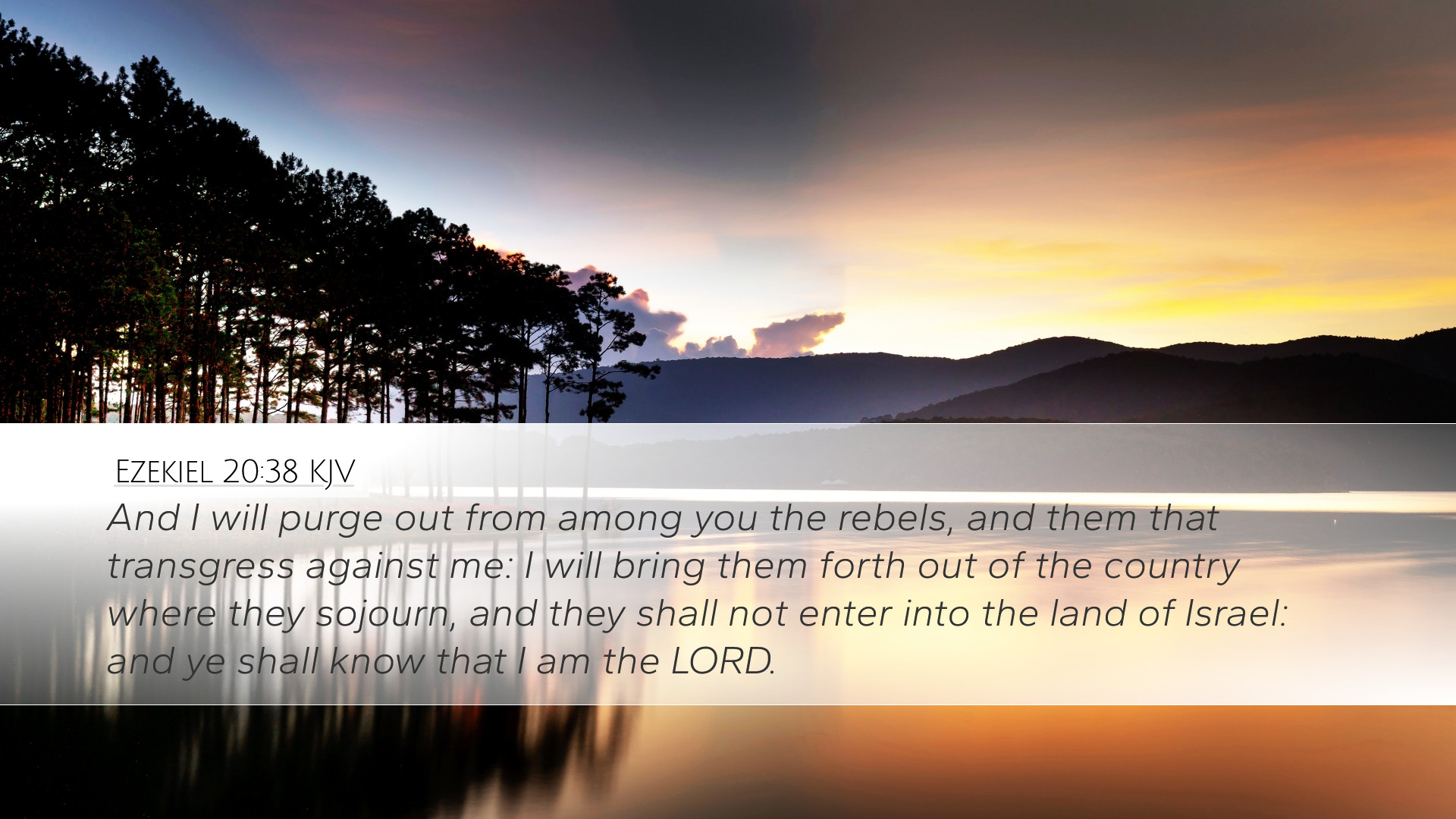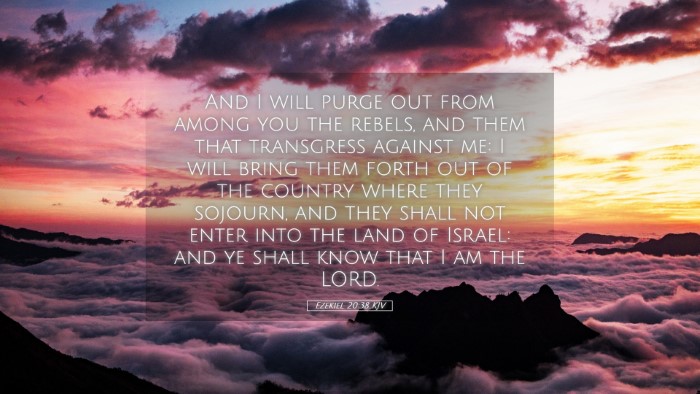Ezekiel 20:38 Commentary
Bible Verse: "And I will purge out from among you the rebels, and them that transgress against me: I will bring them forth out of the country where they sojourn, and they shall not enter into the land of Israel: and ye shall know that I am the LORD."
Introduction
The verse Ezekiel 20:38 serves as both a warning and a promise from God to the people of Israel. It encapsulates God’s intention to purify His people from rebellion and unfaithfulness. The insights derived from public domain commentaries by Matthew Henry, Albert Barnes, and Adam Clarke offer a deeper understanding of this passage, its context, and its implications for theology and practical faith.
Contextual Background
Ezekiel was a prophet during the Babylonian exile, addressing the Israelites who were grappling with the implications of their sins and God’s judgment. Throughout the book, Ezekiel speaks of God’s sovereign power, justice, and the call to return to a covenant relationship.
Significance of Purification
Henry notes that the concept of purging is central to understanding God’s dealings with Israel—a fundamental theme within the prophetic literature. God seeks to separate the righteous from the unrighteous, a process that often involves judgment and correction.
The Hebrew Concept of Rebellion
Barnes articulates that the word for "rebels" in Hebrew denotes a stubborn refusal to comply with God’s will. This goes beyond mere actions; it reflects a posture of the heart. The text emphasizes that those who persist in rebellion face inevitable consequences.
Theological Implications
This verse invites deeper theological reflection on attributes of God such as holiness, justice, and mercy.
Holiness and Separateness
Clarke emphasizes that God's holiness necessitates that sin cannot go unpunished. The act of purging signifies a divine cleansing and a removal of defilement, which aligns with God's character as perfectly holy.
Justice in Judgment
Henry posits that divine judgment serves as a corrective measure, allowing the stubborn heart of humankind to be molded through discipline. God’s desire is not merely punitive but corrective, aimed at restoration rather than mere retribution.
God’s Mercy Through Warning
Barnes highlights that even in judgment, God extends mercy by providing warnings and allowing time for repentance. The act of purging is rooted in God’s commitment to a covenant relationship, displaying His desire for restoration.
Pastoral Applications
For pastors and church leaders, Ezekiel 20:38 provides valuable lessons in leadership, discipline, and community living.
Addressing Rebellion in the Church
Leaders are called to recognize and address rebellion within their communities. The need for discernment in distinguishing between genuine struggles and outright rebellion is imperative.
Encouragement for Repentance
Henry suggests that this passage can serve as a motivational scripture for encouraging congregants towards repentance and reconciliation, promoting a church culture that values holiness and accountability.
Applications for Theological Reflection
The verse invites theologians to reflect on the broader narrative of God’s holiness juxtaposed with human sinfulness.
The Role of Judgment in God’s Plan
Scholars are encouraged to study how judgment acts as a precursor to restoration, a theme that runs throughout scripture and culminates in the New Testament’s revelation of grace through Christ.
The Assurance of God’s Sovereignty
This verse reassures believers of God’s sovereignty over history and His people, reminding them that despite rebellion, God remains actively involved in the process of sanctification.
Conclusion
Ezekiel 20:38 highlights God’s commitment to purifying His people. Through a careful examination of public domain commentaries, we uncover a wealth of theological and practical insights. The themes of judgment, mercy, rebellion, and purification are crucial for understanding God's relationship with His people—as relevant today as they were in Ezekiel’s time.
As we reflect on this passage, may we be reminded of the urgency of aligning our lives with God’s will and pursuing a deeper relationship with Him, recognizing that true obedience and repentance lead to restoration and peace.


